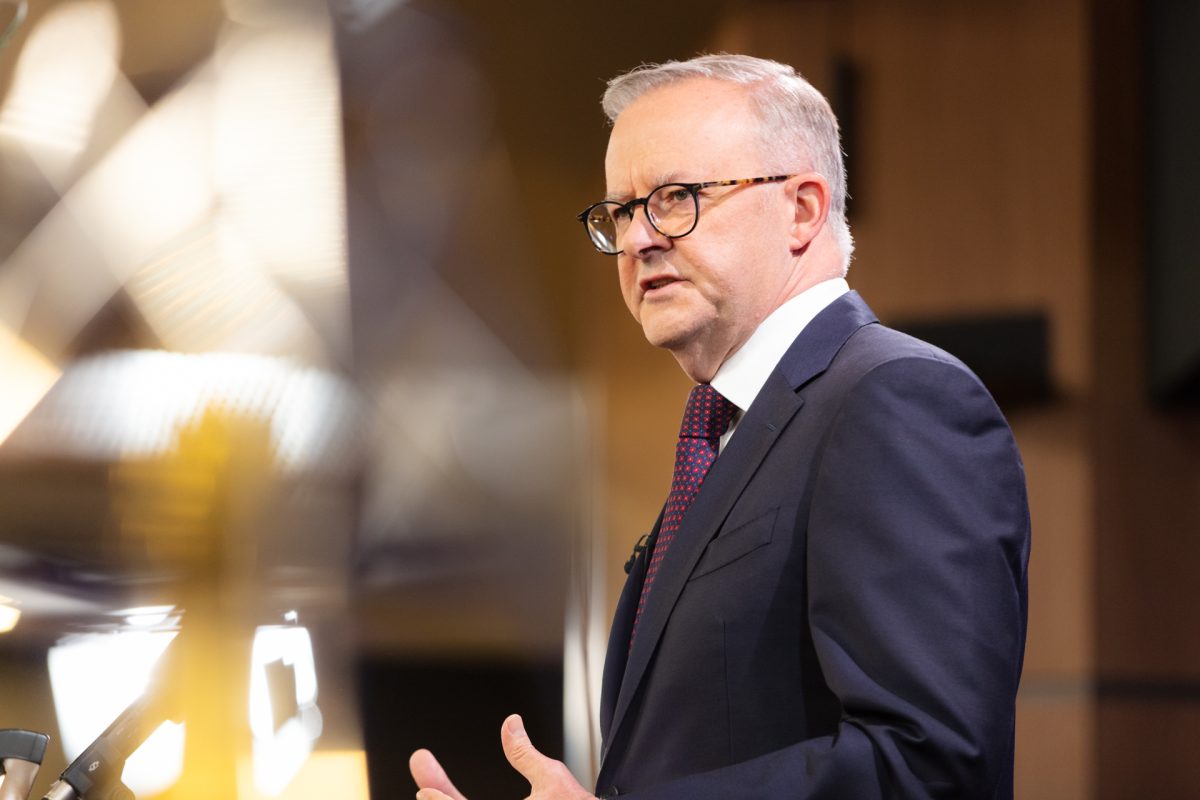
Prime Minister Anthony Albanese has announced a wider-than-expected ministerial reshuffle. Photo: Michelle Kroll.
Anthony Albanese’s new-look front bench is all sworn in, with the Prime Minister promising to take this Cabinet to the next federal election.
But while all ministers have been tasked with making a mark in the face of Labor’s dwindling polling numbers, there is a frantic scramble across public service departments bracing for the changes their new bosses will implement.
For many agencies right now, it’s all about preparing incoming briefs for new ministers.
That’s a huge task for those affected by Sunday’s reshuffle, which was substantially broader than had been anticipated.
With the resignations of Linda Burney and Brendan O’Connor last week, speculation was their respective Indigenous Affairs and Skills and Training portfolios might have been the only ones reassigned.
However, the PM took the opportunity to make some sweeping changes and shake up the floundering Home Affairs and Immigration ministries.
Clare O’Neil was moved sideways from Home Affairs to become Housing Minister, while the embattled Andrew Giles was dumped from Immigration to take up Skills and Training.
As expected, Northern Territory senator Malarndirri McCarthy was named Minister for Indigenous Australians.
But it is Tony Burke who has emerged as the big winner from the shakeup. He is taking on a massive portfolio as the Minister for Home Affairs, Minister for Immigration and Multicultural Affairs, Minister for Cyber Security, Minister for the Arts, and Leader of the House.
Murray Watt takes over from Burke as Minister for Employment and Workplace Relations, while Julie Collins leaves Housing to replace Watt as Agriculture Minister.
Pat Conroy takes his Defence Industry and International Development and the Pacific portfolios into Cabinet, while Jenny McAllister is Minister for Cities and Emergency Management.
“These combined changes, I think, represent a significant move forward,” Mr Albanese said.
“I would expect that this is the team that I will take to the election when it is held sometime in the future.”
In addition to the Cabinet and outer ministry changes, the Prime Minister tweaked the roles of a number of assistant ministers, including adding Assistant Minister to the Attorney-General to Patrick Gorman’s other assistant roles, which still include Assistant to the Prime Minister and Assistant Minister for the Public Service.
Matt Thistlethwaite is Assistant Minister for Immigration; Ged Kearney, Assistant Minister for Health and Aged Care and for Indigenous Health; Tim Ayres, Assistant Minister for a Future Made In Australia and Trade; Anthony Chisholm, Assistant Minister for Education, Assistant Minister for Regional Development and Agriculture; Kate Thwaites, Assistant Minister for Social Security, for Ageing and Assistant Minister for Women; Josh Wilson, Assistant Minister for Climate Change and Energy; and Julian Hill, Assistant Minister for Citizenship and Multicultural Affairs.
The PM also named three special envoys – Peter Khalil for Social Cohesion, Luke Gosling for Defence, Veterans’ Affairs and Northern Australia, and Andrew Charlton for Cyber Security.
Mr Albanese denied Ms O’Neil and Mr Giles had made too many mistakes in Home Affairs, necessitating their removal.
He said identified dysfunctions in the department were leftover from the previous Coalition government.
“What Clare O’Neil and Andrew Giles have had to do is to repair the damage which has been done,” the Prime Minister said.
“There is one change to the Department of Home Affairs, which is that ASIO will move to the Attorney-General’s Department, so it will be there with the Australian Federal Police.
“That’s something I’ve discussed with the Director General of ASIO. [We did] what we had to do. What you do when there’s a reshuffle is that there is a change that then has a knock-on effect.
“The fact is that we have been a very stable government.”
The changes mount up to some serious admin and paperwork for the Australian Public Service this week, with so many agencies affected.
Incoming briefs are the first opportunity for department heads to impress on their new political masters that their portfolios are in safe hands and ready for smooth transitions.
Informing incoming ministers of department priorities and the status of policies is an immediate focus for public servants at all levels of the APS.
Some departments have incoming briefs already essentially prepared, or at least well in train, in anticipation of expected changes, but the size and depth of the ministerial reshuffle has caught many of them by surprise.
Original Article published by Chris Johnson on Riotact.









